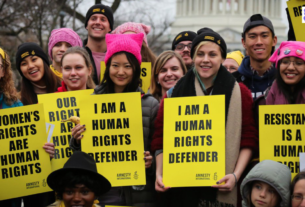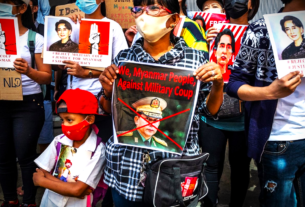A controversial UK Supreme Court ruling has reignited fierce national debate over transgender rights, following a legal clarification that “sex” in the Equality Act 2010 refers specifically to biological sex.
The decision, handed down earlier this week, will likely reshape how public institutions interpret key equality protections, particularly regarding access to gender-specific spaces such as shelters, restrooms, and healthcare services.
Former First Minister Nicola Sturgeon condemned the ruling, warning that it could make trans people’s lives “almost unliveable.” In a statement, she said: “This decision strips away essential protections and reinforces a dangerous narrative of exclusion.”
Trans rights advocates fear the ruling could be used to legitimize the denial of access to female-only facilities for trans women, sparking fresh concerns over institutional discrimination. The Equality and Human Rights Commission (EHRC) has since issued interim guidance suggesting that service providers may lawfully exclude trans individuals in certain situations based on the new interpretation.
“This sets a deeply troubling precedent,” said LGBTQ+ campaigner Jayne Ozanne. “It fundamentally alters the balance of rights and protections we’ve worked for decades to secure.”
Supporters of the ruling, including women’s rights groups like Sex Matters, argue that the clarification upholds biological reality and ensures fairness in single-sex services, particularly in prisons, sports, and domestic violence shelters. “This is not about exclusion—it’s about safeguarding,” said campaigner Maya Forstater.
The ruling has also intensified divisions within Parliament. Some MPs are calling for urgent legislative review of the Equality Act, while others insist the law is now clearer and more enforceable.
Public opinion remains sharply divided, with demonstrations and counter-protests expected in major UK cities over the weekend. Social media platforms have erupted in heated debate, with trending hashtags like #TransRightsAreHumanRights and #ProtectSingleSexSpaces reflecting the polarized landscape.
Legal experts say the ruling may prompt further cases as individuals and institutions test its limits. Meanwhile, trans advocacy groups have pledged to continue challenging any discriminatory applications of the judgment, both in UK courts and through international human rights mechanisms.




